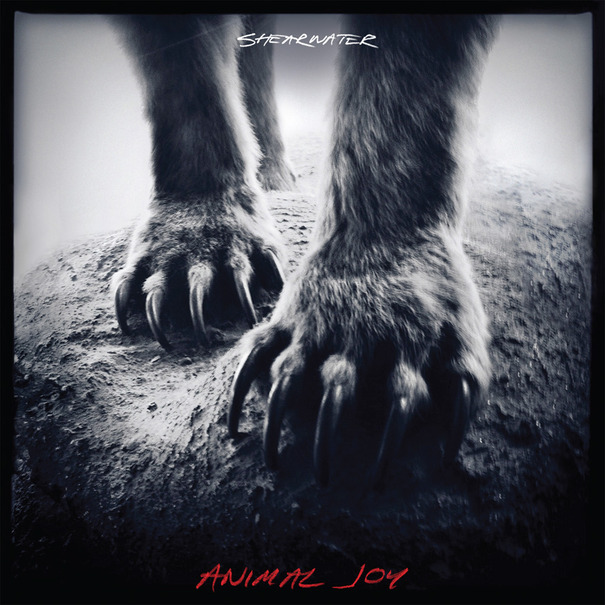Shearwater Animal Joy
by Martin White
For the past decade, Shearwater has churned out new LP's like clockwork. Every two years you can basically count on the group to release a new LP with a new wrinkle added to their sound. For eleven years, they have been gradually molding and playing with their delicate and unique folk-rock sound. But Animal Joy, their 7th LP, finds Shearwater taking perhaps their biggest step forward yet, simplifying their sound and crafting some of the most immediate songs in their repertoire. Here, the band builds off of the harder-edged, more aggressive sound of songs like Palo Santo's "White Waves" or Rook's "Century Eyes." Whereas those albums often relied slowly unraveling folk excursions, the songs here are more straightforward, concise, and even upbeat. And singer Jonathan Meiburg minimizes his pensive Mark Hollis side, replacing it with surging, exuberant proclamations that bring to mind Richard Thompson's most inspired work.
And Meiburg really does sound like Thompson at times (though he certainly doesn't match the the English accent) while the narrative imagery of opener "Animal Life" and rollicking folk rock of "Immaculate" recall the great British folk artist's more recent work on Mock Tudor. The Talk Talk side is not totally absent, but instead of the pensive, textured sounds of Laughing Stock, Meiburg's more straightforward songs go for the sophisticated, mature pop of Colour of Spring. On "Open Your Houses" and "Believing Makes it Easy," hooky piano and guitar leads lend these songs an immediacy that Shearwater has never really had before. Though "Open Your Houses" isn't exactly "Happiness is Easy," it is certainly one of Shearwater's catchiest and most instantly memorable songs to date.
Just like the rest of Shearwater's work, this is not a terribly easy album to characterize as it doesn't fit in with much else that is going on in indie rock these days. Even though they have further moved toward more conventional, louder songs, the band still occupies its own unique piece of territory and the emphasis on a heavier sound absolutely pays off. The slow-burning build-ups are still here, with "Breaking the Yearlings" features a variety of thundering percussion instruments knocking away against a metallic and squealing guitars. The longest track here, "Insolence," provides a view forward at the same time as it looks back to the band's trademark sound. It begins quietly behind a skeletal arrangement of percussion and shimmering harp, before growing into a monolithic anthem of pounding piano chords, gritty guitar riffs, and Meiburg's gripping, howling refrain that "Joy is real / It's real / One more time, it's real." So, sure, the group's more accessible side definitely pays off, but they still know how to write a great epic.
The more buttoned-up, direct approach isn't without its pitfalls, however. It isn't immediately clear whether these simpler songs will necessarily stand the test of time, and there are a few songs here that do sound similar enough that it takes a handful of listens to really discern them. On a few of the tracks the sound just feels somewhat cluttered and compressed, as if all of the vast instrumentation that the LP contains was condensed into a little container. Meiburg's vocals also end up sounding a bit muddy on some of the songs, especially when he becomes overwhelmed and submerged by the reverberating kick drums and ambient noise that just seems to hang in the background. On "Immaculate," for instance, his vocals feel like they've been compressed into a narrow bit of the sound-stage and they end up falling into a sort of compressed purgatory. These songs are good enough that they probably could have cut back a bit on the additional instrumentation and vocal effects; a bit more negative space would be appreciated.
For the most part, Shearwater sounds more focused--and more energized--than ever. And though Animal Joy is more easily digestible than their past work, it is no less thoughtful, and for me it is quite a bit more fun to listen to again and again.

No comments:
Post a Comment